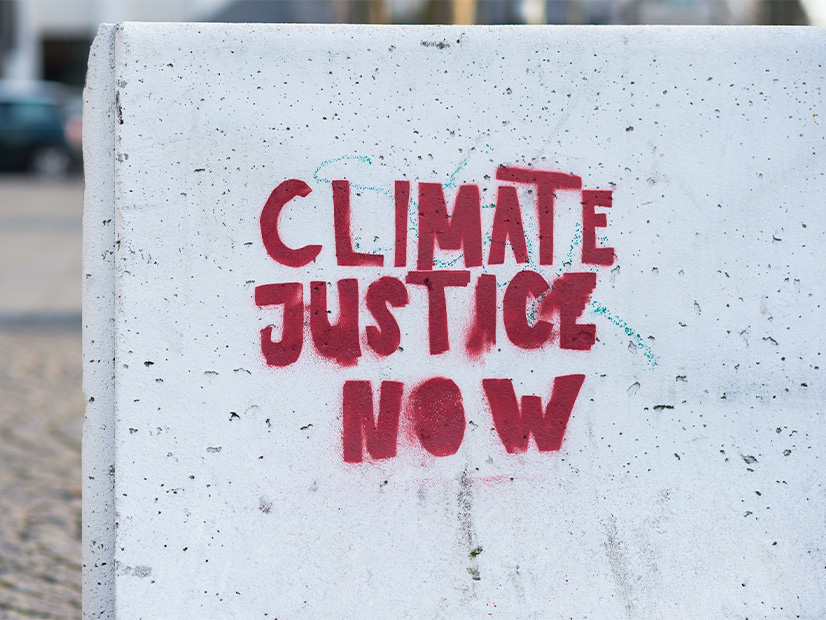
The Connecticut Department of Energy and Environmental Protection (DEEP) launched the state’s Equity and Environmental Justice Advisory Council with an inaugural meeting Tuesday.
Creation of the council “reflects a priority within DEEP and the Lamont administration to center equity and environmental justice in our work, especially when it comes to addressing environmental quality, energy equity, climate change mitigation and resiliency, health disparities, racial inequity and current and historic environmental injustice,” Commissioner Katie Dykes said at the meeting.
Dykes will co-chair the 18-member council with Mark Mitchell, associate professor of climate change, energy and environmental health equity at George Mason University.
“Historically, non-white communities, particularly African American communities, are exposed to a number of different environmental and social traumas, so cumulative risk is something that you will hear a lot as we move forward,” Mitchell said.
The Governor’s Council on Climate Change recommended formation of the environmental justice (EJ) group, and Gov. Ned Lamont authorized it as a part of DEEP in an executive order in December.
Among the council’s priorities will be to advise DEEP on how to incorporate EJ considerations into its programs, policies and activities. It will also be responsible for creating mechanisms for EJ communities to participate in DEEP’s work areas and developing a model plan for community engagement and outreach.
The council includes representatives from the Connecticut departments of public health, housing, transportation, and economic and community development. Their presence will “strengthen and inform” the council’s work and “help incorporate environmental justice principles and priorities in the work of those agencies,” Dykes said.
Initial work plan priorities will include establishing areas of DEEP’s authority that the council will focus on and the structure for their discussions. Dykes suggested the council form subcommittees that can address DEEP’s wide range of programs and responsibilities, such as land resources, environmental quality, climate mitigation and energy equity.
The council may also consider convening community meetings, particularly in EJ communities, to collect public comments on the topics covered by subcommittees, Dykes said.
Rep. David Michel (D) congratulated the council members on their appointments during the meeting and asked them to consider creating a subcommittee on energy facility permitting.
“Considering that today’s language in statutes makes it hard for DEEP to turn down a permit for a new polluting facility, or even an existing facility, permitting should definitely be a focus of the group,” he said. The legislature has tried to address the issue, he said, adding that the council’s work could support legislators’ ongoing efforts through, for example, better mapping of EJ and distressed communities and the facilities that cause pollution.
DEEP is currently facilitating a two-year project, as recommended by the governor’s climate council, to develop an EJ screening tool that identifies environmental and public health indicators across the state.
Dykes said the department anticipates scheduling quarterly council meetings, with the next one planned for September.
Member Priorities
The council took time during the meeting to get to know each other and share their priorities.
Sharon Lewis, executive director of the Connecticut Coalition for Environmental Justice, said the statewide coalition has a wide focus on environmental issues, but it is “majorly concerned” about zero waste and what Connecticut will do about it.
“Overall, we want to see an equitable sharing of the benefits and the burdens of the environment and meaningful involvement of those most impacted by the decisions that are implemented and affect their well-being,” Lewis said.
Taylor Mayes, an organizer for the Black Environmental Activist Movement, concurred with Lewis, saying that her work focuses on “making sure that black communities throughout Connecticut have the same access and opportunity to environmental assets and benefits as the rest of the state does.”
At the grassroots coalition CT Equity Now, Katharine Morris works to build bi-directional engagement with community members.
“I want to engage with them in a way that is sustainable so that they believe in us to actually represent their needs,” Morris said. CT Equity Now focuses on initiatives related to ecological health, sustainable food systems, clean transportation, transitioning to clean energy and “facilitating natural remedies to long-standing pollution impacts,” she said.
Maisa Tisdale, president of the Mary and Eliza Freeman Center for History and Community, said the center is solely focused on preservation-based equitable development in the state.
“The future of our community is directly and significantly impacted by remediation of brownfields,” she said. The remediation of shuttered utility brownfield sites and their return to communities for equitable development could represent “a form of reparations.”


